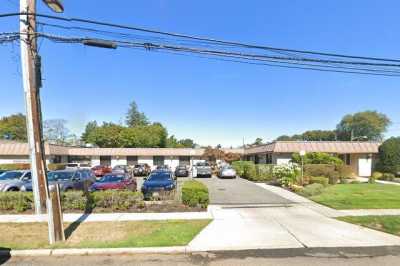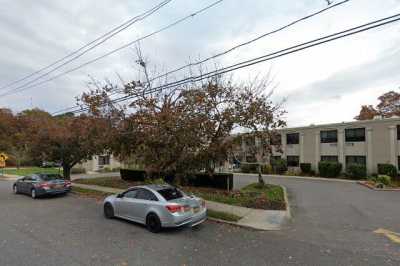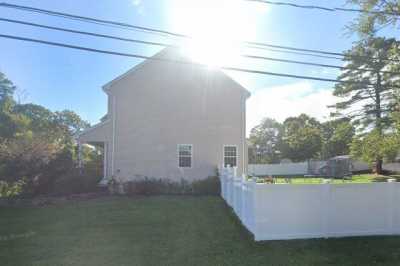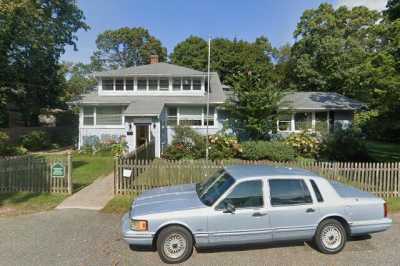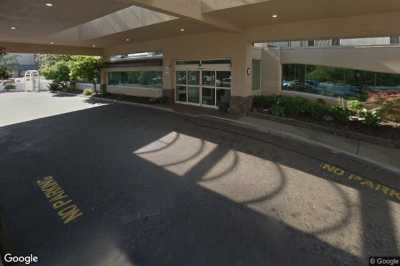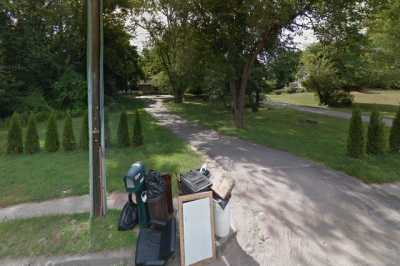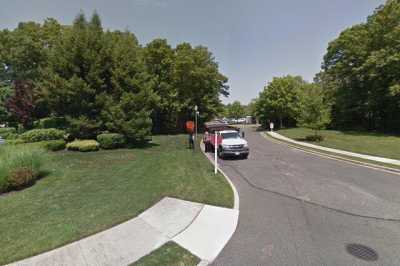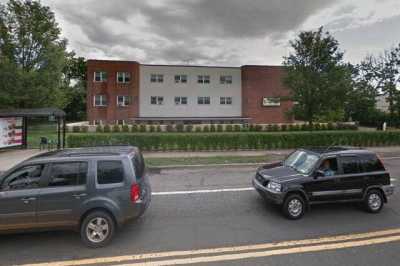
10 Best Nursing Homes in Ronkonkoma, NY
Long Island is an excellent locale for seniors needing assistance and nursing care, as the area is home to several highly ranked hospitals and medical specialties. If you’re considering moving your loved one into a nursing home on Long Island, we can help.
While the term “nursing home” is sometimes used interchangeably with other senior living options like assisted living or memory care, it specifically refers to a skilled nursing facility designed for individuals with serious short- or long-term health issues — such as after an acute hospital stay.
While we don’t have any standalone nursing home partners, we do partner with 21 facilities that offer various combinations of assisted living and memory care. Assisted living is designed for people who need help with basic day-to-day activities; assisted living frequently offers different levels of care according to the needs of each senior, providing assistance via nursing care, housekeeping, and prepared meals. One subset of assisted living is memory care. This type of care on Long Island incorporates cognitive activities and therapies to reduce residents’ confusion and agitation.
If you are researching care for your loved one, whether skilled nursing or another type of care is appropriate, A Place For Mom can help guide that process and locate the right setting. Our partner listings are all in a 10-mile radius of Long Island’s hub of Ronkonkoma, a range that encompasses areas such as Bay Shore, Islip, and Hauppauge. This guide will discuss the basics of skilled nursing facilities, assisted living, and memory care, explore payment options and regulations, and discuss the excellent health care, transportation, and activities available to seniors on Long Island.
Nursing Homes Facilities near Ronkonkoma, NY
I was a bit hesitant and apprehensive in the beginning because of the situation that had occurred years ago. But I took a chance and decided to get my Rehab at Medford. TO my surprise, this facility was...
Our free advisors can help
- Compare local facilities
- Determine care type
- Schedule tours
- Evaluate pricing
Our methodology
How we rank order the Ronkonkoma community options above
We developed a proprietary recommendation system that orders Ronkonkoma community options based on factors we know are important to seniors and their families:
- Proximity to your search location
- Availability of recent, high-quality reviews
- The amount of detailed community information available
Where we source our information
14,000+ communities
We collect proprietary data from our network of 14,000+ senior living communities in the U.S., with regular refreshes of data and information
350,000+ reviews
We have 387,000+ reviews from senior living residents and family members that provide first-hand accounts about senior living communities
- Costs of nursing homes in the Long Island area
- What families are saying about nursing homes in Ronkonkoma
- How people pay for a nursing home on Long Island
- Understand New York laws and regulations for nursing homes
- What to expect from nursing homes on Long Island
- Ronkonkoma nursing homes services and amenities
- Explore senior care with confidence
- Unfamiliar with Long Island? Highlights for seniors
- Health care for seniors on Long Island
- Transportation for seniors on Long Island
- Senior activities on Long Island
Costs of nursing homes in the Long Island area
Nursing homes — also known as skilled nursing facilities that provide short- and long-term care to patients — offer round-the-clock medical care. The average monthly cost of a private room in a New York nursing home is $13,233.[01] Because these facilities are designed for more intensive medical needs — and carry considerable associated expenses — they may not be the appropriate setting for all seniors.
Assisted living or memory care may more accurately meet seniors’ needs. According to A Place for Mom’s 2022 proprietary data from partner communities on Long Island, memory care facilities can cost $6,482, on average; the average cost for a Long Island assisted living facility is around $5,859.[02] This cost includes all service fees and add-ons, but individual costs vary depending on additional services needed.
With that payment, residents on Long Island receive 24-hour supervision, medication management, and day trips and outings. Seniors can also care in the form of an on-call doctor, visiting medical specialists, complimentary transportation, and specialized dietary meal options.
Average monthly cost of Nursing Homes in Ronkonkoma, NY vs. nearby cities
Average monthly cost of Nursing Homes in Ronkonkoma, NY vs. the state and national average
Average monthly cost of Nursing Homes in Ronkonkoma vs. other types of senior living
Median monthly costs of Nursing Homes in Ronkonkoma, NY by room type
Average cost of Nursing Homes in Ronkonkoma over time
What families are saying about nursing homes in Ronkonkoma
Recent reviews for nursing homes in Ronkonkoma
St. James Healthcare Ctr
The Hamlet Rehabilitation and Heath Care Center at Nesconset
The Bristal at East Northport
How people pay for a nursing home on Long Island
The payment for skilled nursing care typically involves a combination of private and public funding sources, which may include personal savings or benefits from Medicaid and Medicare. The sections below offer details about payment options for skilled nursing facilities on Long Island. These payment sources may comprise private pay, Veterans Affairs (VA) benefits, Medicaid, and Medicare.
Long Island seniors and their families should know that New York has tax laws that may work in their favor. New York exempts Social Security benefits from taxation, and up to $20,000 of income from retirement accounts or private pensions are deductible.[02]
When seniors plan for stays in nursing homes, assisted living, or memory care facilities, they typically rely on their personal income and saved assets, which may include 401(k)s, Roth and traditional IRAs, taxable brokerage accounts, Social Security benefits, pensions, traditional savings accounts, and annuities. New York’s retirement tax laws can assist in maximizing seniors’ income when covering the costs of skilled nursing facilities.
Any of the following can also be sources of payment for seniors:
Number of veterans who live on Long Island
About 30% of Long Island veterans are 75+
Veterans on Long Island should be sure they are maximizing their VA benefits. Aside from VA Pension benefits, veterans should also look into the VA Aid and Attendance Benefit. If a veteran is enrolled in VA health care and requires assistance with daily activities, they may qualify for Aid and Attendance benefits that can cover some in-home care costs in assisted living or memory care facilities. It’s worth checking into to make sure you’re not leaving anything on the table.
It’s not always easy to determine if you might qualify for the VA’s various benefits, which is why working alongside a veterans services officer is advised. These trained experts will know the ins and outs of the application process and can help you. You can find them at Veterans Services Organizations like the American Legion or the Veterans of Foreign Wars. These officers are also at VA offices, too.
Resources for Long Island veterans
Suffolk County Veterans Service Agency
H. Lee Dennison Building
100 Veterans Memorial Highway
Hauppauge, NY 11788-0099
Phone: 631-853-8387
Hours: Monday through Friday, 9 a.m. – 4 p.m.
New York State Department of Veterans’ Services
Suffolk County Center
300 Center Drive, 2nd Floor, Room N207
Riverhead, NY 11901
Phone: 631-852-1413
Disabled American Veterans
Northport VA Medical Center
79 Middleville Road, Building 200, Room B1-36
Northport, NY 11768
Phone: 631-754-7980
Suffolk County Vietnam Veterans of America
Long Island Chapter 11
286 Hawkins Road
Centereach, NY 11730
Veterans of Foreign Wars
Department of New York VFW
Phone: 518-426-8904
William Francis Taylor VFW Post 9486
570 4th St.
Ronkonkoma, NY 11779
Phone: 631-219-5678
Col. Francis S. Midura VFW Post 12144
1218 Old Nicholas Road
Islandia, NY 11749
Phone: 631-285-2379
New York State Medicaid is health insurance for low-income people who can’t afford medical care. In New York, Medicaid does pay for skilled nursing care if the person has qualified both physically and financially. The individual must qualify for Medicaid assistance and then enter into a Managed Long Term Care Program if an individual is dual enrolled in Medicare and Medicaid and is staying in nursing care longer than 120 days.[03]
These programs likely apply to the majority of seniors who need coverage, as they will be dually enrolled by virtue of their age and financial status (if enrolled in Medicaid). If the senior is covered by Medicaid, virtually all nursing home costs — including room and board, therapy, and medication — are paid by the state. Medicaid is an extremely important benefit in the nursing home setting.
Conversely, outside of standalone nursing homes, Medicaid can cover some expenses for assisted living and memory care, but it does not cover room and board. Medicaid will pay for memory care and assisted living in the cases of Assisted Living Programs and Managed Long Term Care Programs (MLTCs) and Home and Community Based Waivers (HCBS). Seniors and their families should explore these programs as they are valuable resources.
There are various options for applying for Medicaid in New York. One common method is through the NY State of Health. Seniors can also apply through Managed Care Organizations (MCOs) by calling the Medicaid helpline or reaching out to their local Department of Social Services office. It is important to carefully consider and explore all available resources to ensure that valuable benefits are not overlooked. The New York City Office of the Aging provides the long-term care ombudsman program, which is a program that also advocates for seniors exploring long-term care options.
Note: For seniors who are at least 65 years of age, online applications are not accepted. They have to be mailed or delivered in person to a DSS office or a navigator agency. These resources are listed below.
Long Island Medicaid resources
NY State of Health
Phone: 855-355-5777
TTY: 1-800-662-1220
Hours: Monday through Friday, 8 a.m. – 8 p.m., Saturday, 9 a.m. – 1 p.m.
Suffolk County Department of Social Services (West)
200 Wireless Blvd.
Hauppauge, NY 11788
Phone: 631-853-8408
Hours: Monday through Friday, 8 a.m. – 3 p.m.
Suffolk County Department of Social Services (East)
300 Center Drive
Riverhead, NY 11901
Phone: 631-852-3570
Hours: Monday through Friday, 8 a.m. – 3 p.m.
Medicaid application mailing address
PO Box 18100
Hauppauge, NY 11788
Nassau/Suffolk Hospital Council
Phone: 631-656-9783
Community Health Advocates
Phone: 888-614-5400
Public Health Solutions
Phone: 646-632-5986
Yvette Boisnier, Ombudsman Coordinator
Family Service League
1444 Fifth Ave.
Bay Shore, NY 11706
Phone: 631-470-6755
Email: yvette.boisnier@fsl.li.org
Medicare is a federal health insurance program designed for people who are 65 years of age or older, as well as those with certain disabilities or medical conditions. It typically does not pay for any custodial room and board, such as memory care or assisted living. In the case of assisted living, Medicare does pay for certain expenses in limited instances, such as for residents who qualify for Assisted Living Programs (ALPs); these residents must need nursing home-level care.
Medicare does pay for nursing home care after an acute hospitalization. In that case, during the initial 20 days of nursing care, Medicare beneficiaries typically have no out-of-pocket expenses. From days 20 to 100, recipients may be responsible for a daily co-pay of up to $200; after day 100, Medicare coverage for nursing care services ends.[04]
Medicare.gov is a place where seniors can submit applications for coverage and learn about their Medicare options. New Yorkers also have access to Health Insurance Information, Counseling, and Assistance Programs (HIICAP) that provide detailed information about Medicare and also offer objective counseling. The Suffolk County Office for the Aging, and local Social Security offices are additional resources for seniors looking to learn about their Medicare benefits.
The Program of All-Inclusive Care for the Elderly (PACE) offers comprehensive health care services to those 55+ who would otherwise qualify for nursing home admission. Both Medicare and Medicaid pay for PACE services on a limited basis. Seniors concerned about rising drug costs can also research the Pharmaceutical Insurance Coverage (EPIC) Program, which helps pay Medicare Part D (drug costs) for seniors.
If you believe your Medicare rights are being harmed, contact your ombudsman without delay. Your ombudsman can advocate for you and engage with the appropriate governmental bodies as required.
Long Island resident Medicare resources
Social Security Administration
75 Oak St.
Patchogue, NY 11772
Phone: 800-772-1213
Hours: Monday through Friday 9 a.m. – 4 p.m.
Social Security Administration
730 Federal Plaza, No. 7
Central Islip, NY 11722
Phone: 866-931-4494
Hours: Monday through Friday 8 a.m. – 4:30 p.m.
Suffolk County Ombudsman
Yvette Boisnier
1444 Fifth Ave.
Bay Shore, NY 11706
Phone: 631-470-6755
Email: yvette.boisnier@fsl-li.org
Suffolk County Office for the Aging
100 Veterans Memorial Highway
Hauppauge, NY 11788
Phone: 631-853-8200
Hours: Monday through Friday, 8:30 a.m. – 4:30 p.m.
Understand New York laws and regulations for nursing homes
Nursing homes are regulated at the federal level by the Centers for Medicare and Medicaid (CMS), while assisted living and memory care facilities and nursing homes alike are regulated at the state level by the New York State Department of Health (NYSDOH). The state carries out inspections on all these senior living facilities on behalf of the federal requirements as well as their own.
Assisted living and memory care classifications and compliance
Assisted living facilities, called Assisted Living Residences, must follow a long list of New York codes, rules, and regulations. These facilities provide personal care, 24-hour supervision, three meals a day, and case management for five or more residents. Another New York classification is the Enhanced Assisted Living (EAL) facility, which requires an additional certification and offers a higher level of care. Generally, more medical and physical assistance is needed by residents in an ERL facility.
Assisted Living Residences must have specific types of people on staff: an administrator, a case manager, and resident aides. Whereas EAL facilities must also have registered nurses, licensed practical nurses, as well as home health aides. The regulations leave it up to the facilities to determine staff to resident ratios, but they’re expected to have enough to meet the needs of all residents at all times of day or night.
Nursing home compliance
Regular certification surveys and revisits are conducted at nursing homes in New York by a team of professionals comprised of nurses, pharmacists, and life safety inspectors. The surveys involve investigating different aspects of the facility, including, but not limited to, fire protection, resident care, staff and resident interactions, and medical records. Additionally, the survey team conducts interviews with family members, residents, and staff members to gather more information about the nursing home’s performance. These measures help ensure that the nursing home is providing high-quality care and complying with state regulations and standards.
New York requires that nursing homes have an administrator’s license.[05] While the function of providing this is the same — protecting seniors — this is different than the residential care services license for Assisted Living Residences, which include assisted living and potentially those who need memory care.[06]
Inspection reports
The NYSDOH inspects all assisted living facilities (this includes memory care) every 18 months to make sure standards are being met. Long Islanders and their families can view the inspection reports at the NYS Health Adult Care Profiles page.
New York’s nursing home reports can be found on the same website but specifically here on this particular tab. You can search in several ways, such as by county or alphabetically. Inspections, called Certification Surveys, are conducted every 9 to 15 months, are unannounced, and can happen any time even on a holiday. This resource explains how to understand the reports, as well as complaint and enforcement summaries.
New York Department of Health contact information
Metropolitan Area Regional Office — Long Island (MARO)
320 Carleton Ave., Suite 5000
Central Islip, NY 11722
Phone: 631-851-3898
COVID-19 regulations for Long Island nursing homes
Staff at senior living facilities are currently balancing the social and emotional needs of their patients with COVID-19 best practices. The below best practices are requirements or general recommendations from the New York State Department of Health.[07]

Vaccinations. Nursing homes must make vaccinations available to individuals within 14 days of admission to a skilled nursing facility.

Masking. The Department of Health recommends that facilities use passive screening (i.e., posting signs) to encourage the wearing of masks.

Facility cleanliness. The Department of Health recommends that individuals have access to disinfecting soaps or washes for hand hygiene. Staff need to ensure frequent disinfection of high-touch environmental practices.

Staff safety. Staff are required to isolate if exposed to COVID-19 and should follow CDC guidelines.

Social distancing. Visitors are encouraged to visit their loved ones, but should follow best practices by the State of New York and the CDC while at the facility.

Quarantining. It is recommended that COVID-positive residents and visitors follow CDC guidelines, which involve isolating for five days after a positive test.

CDC guidelines. All residents and staff must follow all relevant CDC and New York State Department of Health guidelines.
What to expect from nursing homes on Long Island
Long Island skilled nursing facilities are designed for serious medical and around-the-clock care. Because some of these individuals may have recently been discharged from the hospital but still need care, there is an intense focus on meeting their medical needs. Consequently, all Long Island facilities have nursing staff. Nearly all have 24-hour-awake staff and full medication management available. The vast majority have a doctor on call, as well as access to occupational therapists, physical therapists, podiatrists, and speech therapists. Beyond the focus on care, there is a strong effort to make seniors feel comfortable — most facilities provide arts and crafts, TV lounges, happy hours, and live musical performances to keep seniors in their care engaged and happy.
A Place for Mom does not make referrals to standalone nursing home facilities. However, when people are looking for nursing homes, they are frequently intending to look for assisted living or memory care facilities. It’s helpful to understand what those types of care look like on Long Island so families are seeking the appropriate level of care.
Assisted living on Long Island
These state-licensed residences offer personalized care, supervision, meals, and a range of other options to give seniors a safe and secure living space.
There is a sensitivity and dedication to individual needs, with most facilities providing vegetarian dining options, low- or no-sodium services, and medication management. Additionally, the vast majority offer day trips and outings, arts and crafts centers, and fitness classes to maintain health and overall quality of life. Should elevated health needs arise, partner facilities provide on-site nursing, and many have a doctor on call. In addition to these standard care options, there are visiting nurses, occupational therapists, physical therapists, and podiatrists available to help minimize health problems and maximize the enjoyment of the offerings that are reflective of the broader community.
Memory care on Long Island
Long Island memory care is a subset of assisted living facilities that’s regulated by the state and intended to provide a safe and secure environment to seniors experiencing Alzheimer’s or other forms of dementia. Memory care on Long Island, for instance, incorporates memory care activities and therapies to reduce residents’ confusion and agitation. Long Island memory care also provides security features and supervision, along with trained staff to monitor your loved ones.
The provided services are focused mainly on providing comfort and meeting memory loss needs, including facilities that are secured to prevent wandering, geared to provide support to seniors with loss of directionality, and tend to diverse physical needs as well as cognitive. Several facilities are integrated into larger communities and are meant to provide minimal disruption as seniors transition through cognitive and life stages. While there are other amenities such as meals, social gatherings, and dedicated transportation at many facilities, the primary focus is on a safe and dignified care plan.
Nursing homes in the surrounding Long Island suburbs
For families and seniors interested in care located in greater Long Island, more options are available. Within a 25-mile radius of Long Island’s hub of Ronkonkoma, A Place for Mom partners with 23 additional facilities. Five of these provide standalone assisted living care, while 14 offer a combination of assisted living and memory care. Additionally, four facilities offer a combination of assisted living, independent living, and memory care. This progressive care combination is a great find for loved ones who want a variety of options available to support their loved one’s needs throughout time.
Ronkonkoma nursing homes services and amenities
Availability of select care services in Ronkonkoma nursing homes
Availability of select dementia care services in Ronkonkoma nursing homes
Availability of select dietary accommodations in Ronkonkoma nursing homes
Availability of select dining options in Ronkonkoma nursing homes
Availability of select programs and activities in Ronkonkoma nursing homes
Explore senior care with confidence
Know where to start.
Identify the right care for your loved one with our free assessment.

See what you can afford.
Understand cost and payment for long-term care based on your loved one's needs.

Find top facilities for you.
Free, personalized guidance from our Senior Living Advisors can help you narrow your search.

Tour your favorite facilities.
Our free touring checklist can help you choose the right community.
Unfamiliar with Long Island? Highlights for seniors
Number of seniors over the age of 65 currently living on Long Island
Median annual income for Long Island seniors 65 and older
Health care for seniors on Long Island
Long Island hospitals are considered to be at the top of health care facility rankings in the country by numerous surveys. Please see below for a list of the resources available for Long Island senior residents.

Long Island Jewish Medical Center
The teaching hospital, Long Island Jewish Medical Center, has been awarded a national ranking for excelling in care across six adult specialties. It also boasts a top 50 national ranking in geriatric care.

Stony Brook University Hospital
Considered the ninth best hospital in New York by U.S. News & World Report, it’s also been placed on 2023’s America’s 50 Best Hospitals by Healthgrades.

South Shore University Hospital
South Shore University Hospital carries a high performance rating for orthopedics and is the 15th best hospital in New York, according to U.S. News & World Report.
Transportation for seniors on Long Island
Getting around Long Island is made easy by many of the senior living facilities we partner with. More than half of the assisted living facilities we partner with offer free transportation to residents while 40% offer it at-cost. A large percentage of the memory care partners in A Place for Mom’s network — 62% — offer complimentary transportation to and from their facilities and all provide it for a low fee.
If you and your loved one need to get around another way, the following three options are excellent resources:
- Essential Transportation for Seniors: Essential Transportation for Seniors is a door-to-door transportation service that assists seniors with medical appointments and shopping. This service is popular and should be booked in advance.
- Able-Ride/Paratransit Program: This service provides transportation services for people who have a tough time using public transportation due to their unique needs. Attendant caregivers ride for free, creating a low-cost option to accompany seniors and their loved ones. Contact Nassau Inter-County Express (NICE) Bus at 516-228-4028 to apply.
- Long Island Rail Road: Moreover, seniors aged 65 and above can take advantage of the Long Island Rail Road’s half-price fare on trains that do not arrive in New York City by using their Medicare cards, driver’s licenses, or birth certificates as proof of age.
Senior activities on Long Island
Nursing home, assisted living or memory care residents have many needs, and their families want to make sure, in addition to excellent care, that those residents enjoy activities appropriate to their abilities. Long Island offers an abundance of opportunities to meet those needs.
For seniors who are somewhat active or mobile, the parks in the Long Island area can be an excellent and affordable destination. Bailey Arboretum offers a 42-acre preserve full of gardens and wildlife viewing opportunities. The park has paved paths and benches for breaks, and there are interactive activities like nature walks and bird-watching. Sands Point Preserve and Clark Botanic Garden offer similar outdoor activities for families and their loved ones. These can provide low-cost and low-stress activities for families to explore.
If seniors want to explore Long Island’s history, they should visit the Cradle of Aviation Museum to learn about Long Island’s importance in the development of flight and its contributions to the continued exploration of the skies. This museum offers wheelchair accessibility and assistive listening devices. The Long Island Museum offers similar opportunities to explore history and has a diverse range of exhibits to explore.
Shopping is an enjoyable pastime for some, if you are your loved one are looking for something new, check out one of the area’s outlet malls. For a more unique experience, the picturesque Village Town Shops in Suffolk County have everything from cozy restaurants to adorable boutiques.
Frequently Asked Questions
Atria Plainview, Maplewood at Southport and Atria Bay Shore are the top-rated Nursing Homes facilities near Ronkonkoma, NY. These Nursing Homes facilities received the highest rankings based on verified family reviews. See full list of communities.
The average cost of Nursing Homes in Ronkonkoma is $6,093 per month. This cost may vary based on location, amenities, floorplan, level of care and other factors.
Views -> Challenger -> By Care type answer 3
References
Genworth. (2021). Cost of Care Survey.
A Place for Mom. (2023). A Place for Mom proprietary data.
New York State Department of Health. (n.d.). Managed long-term care. Department of Health.
Centers for Medicare & Medicaid Services. (n.d.). Skilled nursing facility (SNF) care. Centers for Medicare & Medicaid Services.
Nursing Home – Minimum Standards, N.Y. Comp. Codes Rules & Regulations. Title 10 § 415.1 (2023).
Hoffman, C., & Squires, E. (2015). Confronting workforce challenges in New York’s long-term care sector: Strategies to expand the direct care workforce. Health and Human Services.
New York State Department of Health. (2022). Update to health advisory: Infection prevention and control for adult care facilities during COVID-19 pandemic. Department of Health.
U.S. News & World Report. (2022). Long Island Jewish Medical Center at Northwell Health.
U.S. News & World Report. (2022). Stony Brook University Hospital.
U.S. News & World Report. (2022). South Shore University Hospital at Northwell Health.

More questions?
Ask an A Place for Mom local advisor at no cost.
- East Shoreham, New York
- Baiting Hollow, New York
- Westbury South, New York
- New Cassel, New York
- Westbury, New York
- Jericho, New York
- Salisbury, New York
- Old Westbury, New York
- Hicksville, New York
- Brookville, New York
- East Meadow, New York
- Melville, New York
- East Hauppauge, New York
- Nesconset, New York
- Dix Hills, New York
- South Huntington, New York
- Lower Melville, New York
- Plainview, New York
- Oyster Bay, New York
- Lake Ronkonkoma, New York

